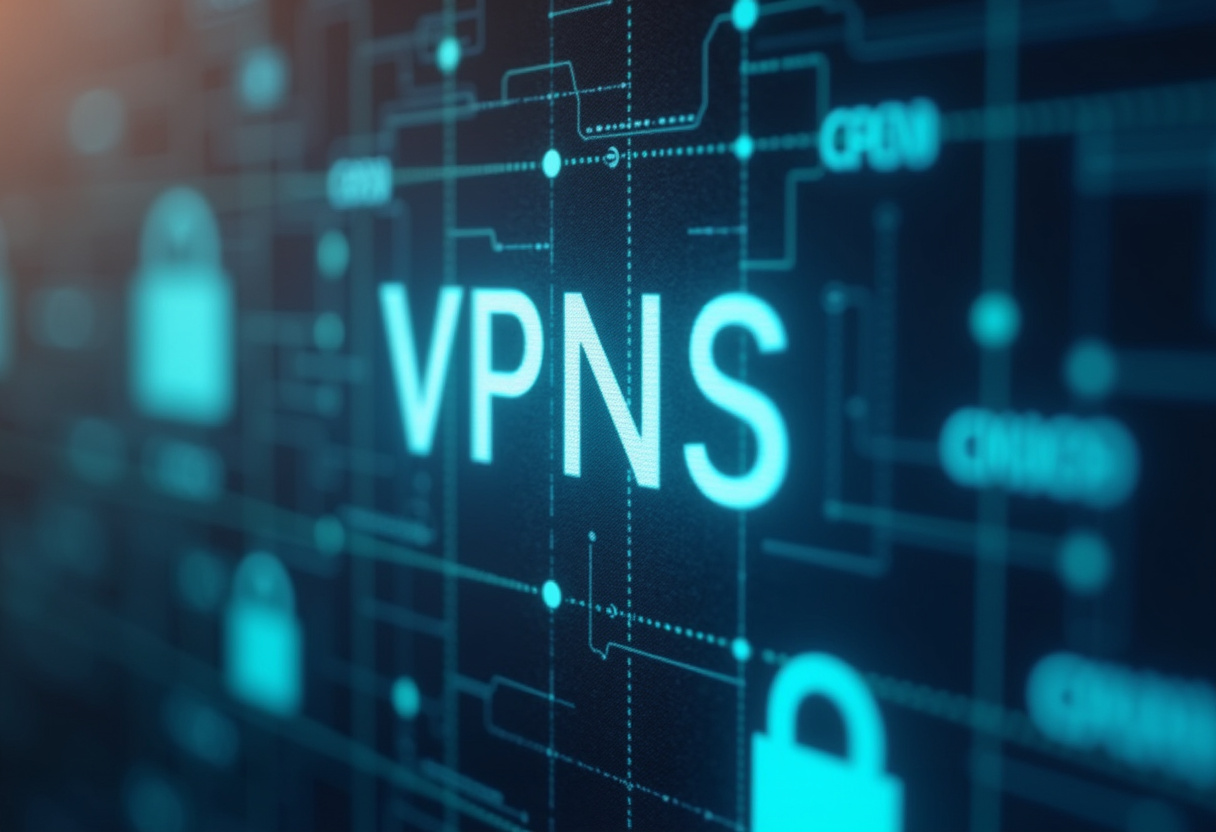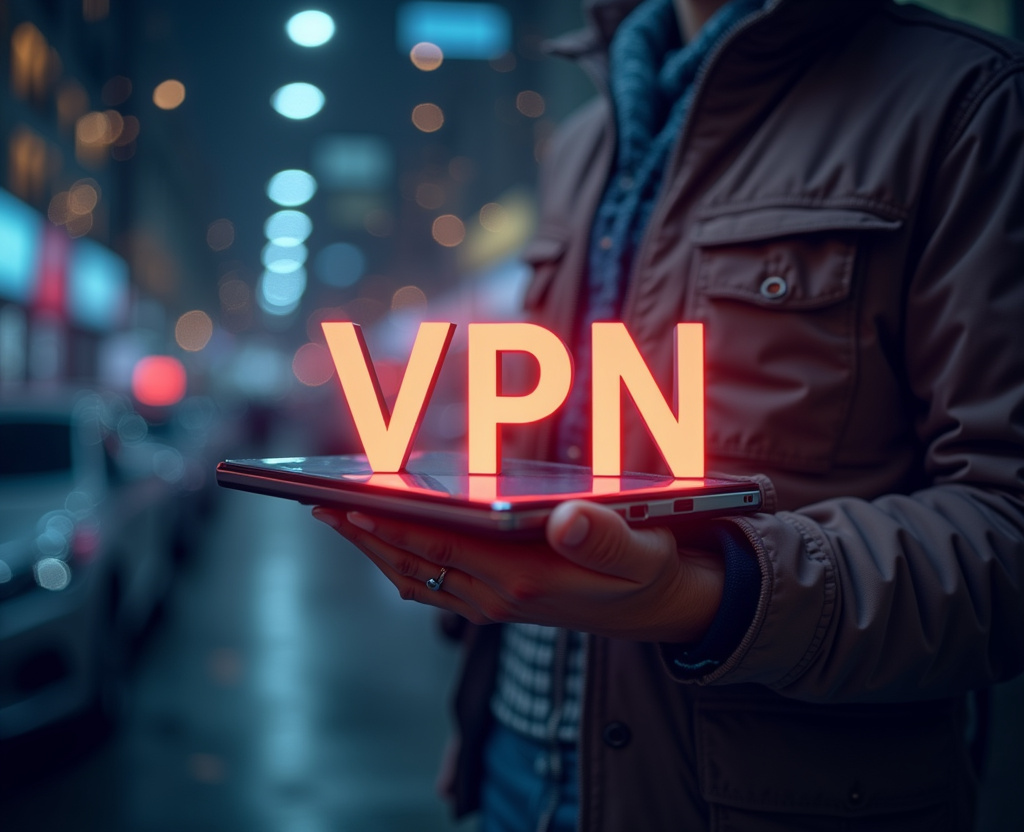VPNs for Religious Organizations: Ensuring Member Privacy

Table of Contents
- VPNs for Religious Organizations: Ensuring Member Privacy in the Digital Age
- Understanding VPNs: How They Protect Online Privacy
- Specific Privacy Concerns of Religious Organizations and Their Members
- VPNs for Services: Enhancing Security for Online Platforms
- The Future of VPNs in Ensuring Security, Privacy and User Experience
VPNs for Religious Organizations: Ensuring Member Privacy in the Digital Age
In an era where digital connectivity is paramount, religious organizations are increasingly reliant on technology to foster community, disseminate teachings, and manage operations. From online services and virtual meetings to digital donations and confidential counseling, the internet has become an indispensable tool for these institutions. However, this digital transformation brings with it a corresponding rise in privacy and security concerns.
Religious organizations often handle sensitive information about their members, including personal beliefs, spiritual struggles, financial contributions, and contact details. Protecting this data from unauthorized access, surveillance, and potential misuse is not merely a best practice, but a moral imperative. A Virtual Private Network (VPN) offers a robust and practical solution for enhancing member privacy and bolstering communication security within religious communities.
This article explores the critical role of VPNs in safeguarding member privacy for religious organizations, outlining how they address key security concerns and contribute to a more secure, trustworthy, and digitally responsible environment. We will delve into the practical applications of VPNs, the key considerations for selecting the right VPN service, and the broader implications for building a culture of privacy within religious organizations. The core function of a religious organization VPN lies in creating a secure, encrypted tunnel for internet traffic.
Think of it as a private, shielded pathway through the public internet. All data transmitted through this VPN connection is scrambled, rendering it unreadable to prying eyes such as internet service providers (ISPs), government entities, malicious hackers, and even potentially unscrupulous third-party trackers. This encryption is paramount for religious organizations, as it ensures that sensitive communications, such as prayer requests, confidential counseling sessions (conducted virtually), internal discussions among leadership, and online financial transactions, remain strictly confidential.
Imagine a scenario where a member is seeking spiritual guidance on a deeply personal and sensitive matter through an online forum or counseling service hosted by the organization. Without the protection of a VPN, their communications, including the nature of their struggles and personal details, could be intercepted and potentially used against them, or even against the organization itself. A VPN encrypts this communication, transforming it into indecipherable code, effectively preventing unauthorized parties from accessing or understanding the content.
Beyond encryption, a VPN also masks the user's IP address, which acts as a unique identifier for their device and location on the internet. Masking the IP address makes it significantly more difficult to track their online activity, a crucial benefit for members who may reside in regions with restrictive internet censorship, where certain religious beliefs or practices are frowned upon or even illegal. In such environments, using a VPN provides an added layer of anonymity and protection, mitigating the risk of surveillance or persecution.
A VPN ensures that their digital footprint cannot be easily traced back to them. Religious organizations themselves also benefit significantly from utilizing VPNs to secure their internal communications and protect sensitive organizational data. Imagine a scenario where board members are discussing confidential financial matters, strategic decisions, or sensitive personnel issues via email or online collaboration tools.
Without a VPN, these communications could be vulnerable to interception, potentially leading to leaks of confidential information, financial losses, or reputational damage for the organization. A VPN ensures these discussions remain private, preserving the integrity and confidentiality of internal operations. The implementation of a reliable VPN solution is therefore far more than simply a technical upgrade; it represents a tangible commitment to upholding member privacy and ensuring rigorous data protection.
It sends a clear signal to the community that the organization takes their privacy seriously and is proactively investing in safeguards to protect their most sensitive information. This demonstration of care can foster a stronger sense of trust, security, and loyalty among members, encouraging greater participation, transparency, and engagement within the community. Moreover, VPNs play a critical role in securing online transactions, a growing area of concern for religious organizations that rely on digital platforms for donations, fundraising campaigns, and online payments.
Securing these with a religious organization VPN protects these financial transactions from fraud, phishing attempts, and other cyber threats by encrypting the data flowing between the donor and the organization's website or payment processor. Financial information remains secure and confidential, minimizing the risk of financial loss, identity theft, or reputational harm. Protecting member privacy is a moral imperative for religious organizations.
Embracing religious organization VPN technology empowers these organizations to demonstrate a steadfast commitment to safeguarding the privacy and digital security of their members in our increasingly interconnected world.
Understanding VPNs: How They Protect Online Privacy
The selection of a suitable religious organization VPN is a pivotal step in establishing robust member privacy and ensuring rock-solid communication security. It's not simply about choosing any VPN; it's about finding one that aligns perfectly with the unique needs and ethical considerations of a religious organization. When embarking on the evaluation process of different VPN providers, several critical factors must be carefully considered.
These factors extend beyond simple speed tests or price comparisons, delving into the core values and security practices of the VPN provider itself. Foremost among these considerations is the provider's logging policy. Scrutinize this aspect with meticulous care.
A reputable provider committed to privacy will maintain a strict no-logs policy, explicitly stating that they do not track, collect, or store any information related to users' online activity. This includes browsing history, IP addresses, connection timestamps, data transfer volumes, and any other metadata that could potentially be used to identify or profile users. A clear and unambiguous no-logs policy ensures that even if the provider is compelled by legal authorities to hand over user data, there is simply no data available to compromise member privacy.
Transparency is another touchstone of a trustworthy VPN provider. Religious organizations should seek out providers that exhibit transparency in all aspects of their operations, including ownership structure, physical location, and detailed security practices. A provider that is open, honest, and readily forthcoming with information is far more likely to be reliable and accountable.
Investigate the company's background, research their reputation within the cybersecurity community, and look for independent reviews or assessments of their security measures. Furthermore, prioritize providers that proactively undergo regular independent security audits conducted by reputable cybersecurity firms. These audits serve as impartial verification of the provider's claims and ensure that their systems, infrastructure, and security protocols are robust and effectively protect user data.
Beyond policies and audits, the technical aspects of the religious organization VPN are equally critical. The strength and sophistication of the VPN's encryption protocols are paramount for safeguarding communication security. The industry gold standard is AES (Advanced Encryption Standard) with a key length of 256 bits.
This encryption algorithm is considered virtually unbreakable by modern computing technology, providing an exceptionally high level of security for member communications. Supplementing strong encryption, the VPN should also seamlessly support a range of secure and well-established VPN protocols, such as OpenVPN, IKEv2/IPsec, and WireGuard. Each of these protocols offers different strengths and trade-offs, but all are designed to resist eavesdropping, prevent man-in-the-middle attacks, and ensure the integrity of data transmitted through the VPN tunnel.
The geographic distribution of the VPN servers is another crucial factor to consider. Religious organizations should ideally choose a provider with a widespread network of servers strategically located in countries with strong data protection laws and robust legal frameworks that safeguard user privacy. This jurisdictional consideration provides an additional defensive layer, shielding member data from intrusive government surveillance and other potential forms of intrusion.
Evaluate the number and the spread of these servers. A provider with a large number ensures better performance, reduced latency and increased reliability. In addition to strong security and a global server network, the user experience is also important.
The religious organization VPN software should be intuitive, easy to install, and simple to configure, regardless of technical skill. The user interface should provide clear and straightforward controls, allowing members to connect to the VPN with minimal effort and customize their settings according to their individual needs. Finally, while cost is always a consideration, it should not be the driving factor.
Free VPNs are often tempting, but they come with serious drawbacks. These services often impose limitations on bandwidth, throttle connection speeds, and bombard users with intrusive advertising. Some free VPNs even collect and sell user data to third parties.
Paid VPN services, on the other hand, typically offer superior performance, enhanced security features, and a commitment to protecting user privacy. Religious organizations can explore negotiated rates for bulk subscriptions, or discounts that make VPN protection attainable for all. Through such a process, religious organizations can confidently and consciously choose an appropriate VPN solution.
Specific Privacy Concerns of Religious Organizations and Their Members
Implementing a religious organization VPN across the community requires careful planning and execution, ensuring that members understand its purpose, know how to use it effectively, and are aware of its limitations. The success of a VPN deployment hinges not just on the technology itself, but on fostering a culture of digital privacy awareness and responsible online behavior. The first step in implementing the religious organization VPN is to develop a clear and concise policy outlining its purpose, acceptable use guidelines, and any limitations.
This policy should explain why the organization is providing the VPN, what types of activities it is intended to protect, and what types of activities are prohibited while using the VPN. It should also address any privacy concerns that members may have and explain how the organization is committed to protecting their data. This policy should be readily accessible to all members and should be communicated clearly and effectively through various channels, such as email, newsletters, and website postings.
The organization should also consider holding training sessions to educate members about the VPN and answer any questions they may have. These training sessions should cover topics such as how to install and configure the VPN software, how to connect to the VPN, and how to troubleshoot common problems. They should also emphasize the importance of using the VPN properly and responsibly.
The organization should designate a point of contact for members who have questions or need assistance with the VPN. This point of contact should be knowledgeable about the VPN and able to provide timely and helpful support. They should also be responsible for monitoring the VPN and addressing any security issues that may arise.
A crucial aspect of the religious organization VPN implementation is providing comprehensive training and support to members. This training should cover the basics of VPN technology, explaining how it works and why it is important for protecting their privacy. It should also provide hands-on guidance on how to install, configure, and use the VPN software on their devices.
The training should be tailored to the technical skills of the members, with clear and concise instructions that are easy to follow. It should also address common questions and concerns that members may have. In addition to providing training, the organization should also offer ongoing support to members who need assistance with the VPN.
This support can be provided through a variety of channels such as email, phone, or online chat. The organization should also create a knowledge base or FAQ section on its website that answers common questions about the religious organization VPN. It is important to emphasize that a VPN is not a silver bullet for online security.
While it can provide a significant level of protection, it is not foolproof. Members should still be encouraged to practice safe online habits, such as using strong passwords, avoiding suspicious links, and being careful about what information they share online. The policy should also clearly state that the VPN does not protect against all online threats, such as malware, phishing attacks, or online scams.
Members should be educated about these threats and how to protect themselves from them. Regular communication is also essential for maintaining the effectiveness of the religious organization VPN. The organization should regularly communicate with members about the latest security threats and how to protect themselves.
This communication can be provided through email, newsletters, or website postings. The organization should also encourage members to report any security incidents or concerns to the designated point of contact. The organization should also regularly review and update its VPN policy and procedures to ensure that they are effective and up-to-date.
This review should take into account any changes in technology, security threats, or legal regulations. It is also important to monitor the VPN for any security breaches or misuse. This can be done through regular security audits and by monitoring VPN logs.
If any security breaches or misuse are detected, the organization should take immediate action to address the issue and prevent future incidents. The organization should also consider conducting regular penetration testing to identify any vulnerabilities in the religious organization VPN infrastructure. This testing should be conducted by a reputable cybersecurity firm.
By taking these steps, religious organizations can effectively implement and maintain a VPN that protects the privacy and security of their members. This will help to foster a culture of trust and security within the community. It will also demonstrate the organization's commitment to protecting the privacy of its members.
VPNs for Services: Enhancing Security for Online Platforms
Beyond the technical implementation and user training, fostering a culture of digital privacy within the religious organization is paramount for the long-term success of the VPN initiative. A religious organization VPN is just one tool in a broader strategy of promoting responsible online behavior and empowering members to take control of their digital footprint. This involves educating members about various privacy risks, promoting privacy-enhancing technologies, and establishing clear guidelines for online communication and data sharing.
One key aspect of fostering a privacy-conscious culture is educating members about common online threats and risks. This includes phishing attacks, malware infections, social engineering scams, and the dangers of sharing personal information on social media. The organization can host workshops, distribute informational brochures, or create online resources that explain these threats in plain language and provide practical tips on how to avoid them.
The education should emphasize that privacy is not just the organization's responsibility, but also an individual responsibility. Members should be encouraged to take proactive steps to protect their own data and to be vigilant about potential threats. This education can extend beyond the religious organization VPN to encompass other privacy-enhancing technologies, such as secure messaging apps, password managers, and privacy-focused search engines.
The organization can provide recommendations for these tools and explain how they can help members protect their privacy in different contexts. The organization also plays a crucial role in setting clear guidelines for online communication and data sharing within the community. This includes establishing rules for online forums, social media groups, and email lists.
The guidelines should emphasize the importance of respecting other members' privacy, avoiding personal attacks, and refraining from sharing sensitive information without consent. The organization should also have a clear policy on data collection and usage, explaining what data is collected, how it is used, and with whom it is shared. This policy should be transparent and easily accessible to all members.
The organization should also be mindful of the privacy implications of using third-party services, such as social media platforms or cloud storage providers. It should carefully evaluate these services before recommending them to members and should provide guidance on how to use them in a privacy-friendly manner. Another important aspect of fostering a privacy-conscious culture is promoting open communication about privacy concerns.
The organization should create safe spaces for members to discuss their privacy concerns and to share their experiences. This could be through online forums, support groups, or face-to-face meetings. The organization should also be responsive to members' concerns and should take steps to address any privacy issues that are raised.
This could involve updating the VPN policy, implementing new security measures, or providing additional training. The organization should also be prepared to investigate any privacy breaches or incidents and to take appropriate action to mitigate the damage and prevent future incidents. This includes notifying affected members, reporting the incident to the relevant authorities, and implementing corrective measures.
Ultimately, fostering a culture of digital privacy is an ongoing process that requires commitment and effort from both the organization leadership and its members. By promoting education, establishing clear guidelines, and fostering open communication, the organization can create a community where privacy is valued and respected. This will not only enhance the effectiveness of the religious organization VPN but also create a more trustworthy and secure environment for all members.
It sends a powerful message that the organization cares about the well-being of its members and is committed to protecting their privacy in the digital age. This can build trust and loyalty within the community and foster a sense of belonging. Furthermore, a strong culture of digital privacy can help the organization attract new members who value these principles.
In a world where privacy is increasingly under threat, organizations that prioritize privacy are more likely to be seen as responsible and trustworthy. This can be a significant competitive advantage in the digital age. In addition to attracting new members, a strong culture of digital privacy can also help the organization retain existing members.
Members are more likely to remain
The Future of VPNs in Ensuring Security, Privacy and User Experience
In conclusion, the integration of a religious organization VPN is a potent and necessary step for religious organizations seeking to protect member privacy and secure sensitive communications in today's increasingly interconnected world. As religious communities continue to embrace digital tools for outreach, education, and community building, the imperative to safeguard personal data becomes ever more critical. A religious organization VPN provides a robust and versatile solution, offering encrypted internet access, IP address masking, and secure connections for a wide range of online activities.
However, the implementation of a religious organization VPN is not merely a technical fix; it requires a holistic approach that encompasses careful planning, comprehensive training, and, most importantly, the cultivation of a strong culture of digital privacy awareness. The selection of a VPN provider should be guided by key considerations such as a strict no-logs policy, transparency in operations, robust encryption protocols, a geographically diverse server network, and user-friendly software. Free VPNs should generally be avoided due to their potential security vulnerabilities and privacy compromises.
Equally important is the development of a clear and concise VPN policy that outlines the purpose, acceptable use guidelines, and any limitations of the service. This policy should be communicated effectively to all members, and ongoing training should be provided to ensure that everyone understands how to use the VPN properly and responsibly. A designated point of contact should be available to answer questions and provide technical support.
However, the most crucial element of a successful VPN deployment is the fostering of a culture of digital privacy within the religious organization. This involves educating members about common online threats, promoting privacy-enhancing technologies, and establishing clear guidelines for online communication and data sharing. Open communication about privacy concerns should be encouraged, and the organization should be prepared to investigate and address any privacy breaches or incidents.
By embracing a proactive and comprehensive approach to digital privacy, religious organizations can demonstrate their commitment to protecting the well-being of their members and creating a safe and trustworthy online environment. This can build trust and loyalty within the community, attract new members who value privacy, and enhance the organization's reputation as a responsible and ethical institution. In an era where privacy is increasingly under threat, religious organizations that prioritize data protection are more likely to thrive and maintain the confidence of their members.
The combination of a robust religious organization VPN solution and a strong culture of digital privacy empowers religious communities to navigate the digital landscape safely and securely, enabling them to focus on their core mission of spiritual growth, community service, and positive social impact. Ultimately, a commitment to member privacy is not just a legal or ethical obligation; it is an expression of care, respect, and a fundamental recognition of the inherent dignity of each individual. Therefore, religious organizations should view the implementation of a religious organization VPN and the cultivation of a privacy-conscious culture as essential investments in the well-being and long-term sustainability of their communities.
By safeguarding member privacy, religious organizations can foster stronger bonds of trust, encourage greater participation, and ensure that their online activities are aligned with their values and principles. This commitment to digital responsibility will not only protect the organization from potential liabilities but also enhance its reputation as a beacon of integrity in an increasingly complex and interconnected world. In essence, protecting member privacy is not just about protecting data; it is about protecting people, their beliefs, and their right to express themselves freely and without fear in the digital age.
The religious organization VPN is a tool, but the culture that supports it is the foundation of a truly secure and trustworthy online community.
Stay Updated
Get the latest VPN news, tips, and exclusive deals to your inbox.




